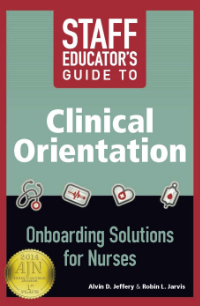Coaching and/or Mentoring
/Coaching and mentoring have some similarities and some significant differences. The most important similarity between the two is the relationship. “The relationship must be one in which there is mutual respect, trust, and mutual freedom of expression” (Flaherty, 2010, p. 9). Another similarity is in “[t]he common goal shared by both coaching and mentoring is that the individual must demonstrate a desire to achieve personal growth through a process of self-realisation/actualisation” (Adams, 2010, p. 69).
Among the significant differences is the length of engagement in the relationship. A coaching engagement, with the exception of executive coaching, is often limited to a particular length of time, usually no longer than 18 months (Bennett & Bush, 2009, p. 3). A mentoring relationship can last as long as the relationship continues to be mutually beneficial.
Based on my experience with both types of relationships, I would suggest another significant difference. Mentoring is often based on someone’s technical or functional skills. For example, if I am a new marketing director, my mentor might be someone who has a great deal of marketing experience at the director- and executive-level and has been successful at those levels. In contrast, I may need a coach who helps me with how I do my job, rather than what I am doing. Perhaps I avoid conflict, so my coach would be someone who has expertise in conflict management.
The process and goals of each type of relationship could be similar. Principle 1 of DeLong’s, Gabarro’s, and Lees’s article is that “Mentoring is Personal” (2008, p. 118). In both situations, it is important to understand what the mentee/coachee desires from the relationship.
“Remember that mentoring is about creating learning opportunities for the other person, not feeling good about yourself” ("," 2010, para. 2). Ultimately, the goals of both are the help the mentee/coachee be successful and develop additional skills needed to do so.
For a mentor, the functional/technical skills are essential, along with the ability to listen, to provide advice when asked, and to guide gently. While a coach might be tempted to apply all those same skills, the coach should be more focused on listening and questioning, rather than supplying advice.
Coaching and mentoring are both important aspects to the long-term development of any successful person and any successful organization.
References
Adams, J. (2010, January). Coaching v. mentoring. Training Journal, 68-70. Retrieved from http://www.trainingjournal.com
Bennett, J., & Bush, M. W. (2009). Coaching in organizations - Current trends and future opportunities. OD Practitioner, 41(1), 2-7. Retrieved from EBSCOhost
DeLong, T. J., Gabarro, J. J., & Lees, R. J. (2008, January). Why mentoring matters in a hypercompetitive world. Harvard Business Review, 86(1), 115-121. Retrieved from EBSCOhost
Flaherty, J. (2010). Coaching - Evoking excellence in others (3rd ed.). Burlington, MA: Butterworth-Heinemann.
Things the best mentors are not. (2010, January). Communications Briefings, 29(3), 5. Retrieved from EBSCOhost




